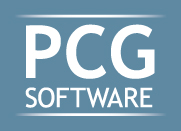PCG Software Chief Operating Officer Andria Jacobs was interviewed for this feature article on coding fraud. The piece ran in the March print issue of For the Record magazine:
Experts offer advice on how to spot the warning signs of coding fraud, how to avoid it in the first place, and what to do when it occurs.
The complicated nature of coding can increase the likelihood of an organization falling victim to fraud and abuse. Even when coders and physicians do not set out to be purposefully fraudulent, mistakes can happen. These costly and potentially damaging errors can have a negative impact on the organization as a whole. As a result, it’s important that coders are diligent about recognizing unethical practices vs legitimate errors. Coders should also know what action to take when faced with an ethical dilemma such as intentional coding fraud.
Case Studies
Fraudulent coding is a serious matter. Take, for instance, the case of John Natale, MD, a highly trained thoracic and cardiovascular surgeon known for treating complicated cases who served a federal prison sentence for upcoding one of his surgeries. While he was ultimately acquitted of Medicare fraud, he was convicted of falsifying an operative record.
Although such cases are relatively rare, they illustrate the importance of diligence when it comes to ethical practices. While jail time is a worst-case scenario, costly fines and other major headaches are much more likely. It’s simply not worth the risk, experts say.





